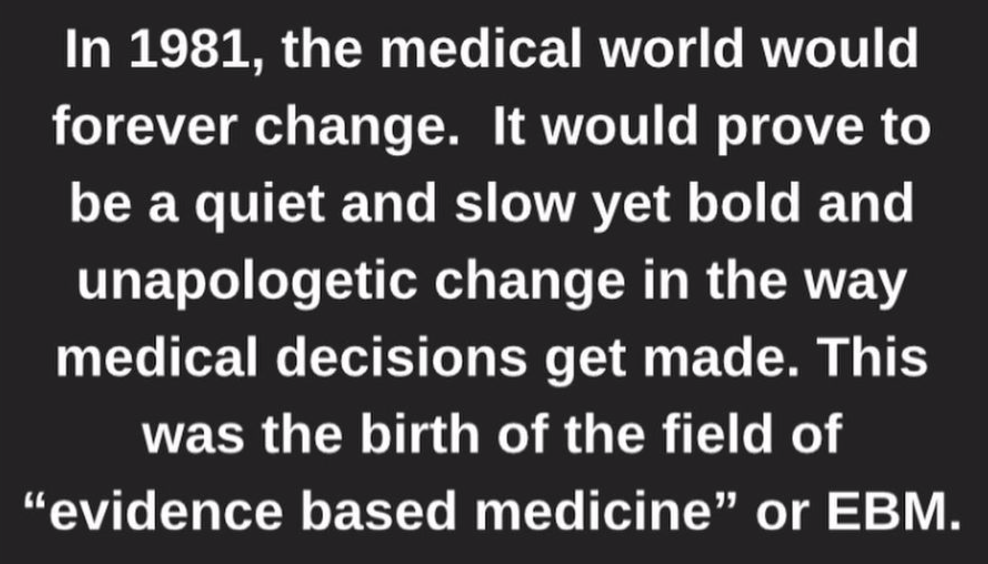Happy 40th to Evidence Based Medicine (EBM)
Celebrating 40 Years of Decision Making based on Evidence
In 1981, the medical world would forever change. It would prove to be a quiet and slow yet bold and unapologetic change in the way medical decisions get made. This was the birth of the field of “evidence based medicine” or EBM.
Evidence based medicine refers to the use of existing clinical research studies published in the medical journals of the world to guide diagnostic and treatment decisions that need to be made for each patient. At each and every step in decision making from diagnosing to recommending (or not recommending) a medication, surgery, treatment, supplement, rehabilitation strategy, diet, or lifestyle practice the clinician looks to the medical literature to see if this issue has been addressed by prior studies and examines the evidence. The clinician then bases his or her recommendations for the patient in front of him or her based on these past studies.
Evidence based medicine changed the practice of medicine. No longer would tradition be revered in quite the same way. No longer would the opinion of most senior professional standing at the front of the room be the opinion that necessarily mattered most. Instead , this honour would be bestowed upon the individual in the room who best understood and interpreted the “medical literature” and what properly conducted past studies had shown.
Although a practitioner who once exclaimed “I treat this condition this way or that way because I always treat it this way or that way” was previously said to have “experience” and was given the utmost of respect this would soon be called “ignorance” and even “malpractice” if it was misaligned with the principles of evidence based medicine.
Of course, experience still matters quite a good amount in medicine since there remain a countless number of clinical situations and clinical questions where there are no good prior studies to guide decisions. But when there are, we must move forward with caring for patients with EBM as our guide. To practice medicine in a manner whereby the recommendations given to the patient sitting in front of us are guided by the hard work and astute observations of those practitioners and researchers who came before us unites the world in a common good.
Happy 40th to EBM!
This article was written by Dr. Jeff Donovan, a Canadian and US board certified dermatologist specializing exclusively in hair loss.

